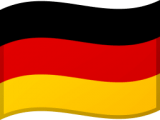 Status: Ratified 1 December 2022
Status: Ratified 1 December 2022
Germany has a bicameral system (Bundestag and Bundesrat). CETA was ratified under Germany’s current “traffic light coalition” government, composed of Social Democrats (SPD), Greens, and Free Democrats (FDP), with support from the largest opposition party, the Christian Democrats (CDU/CSU). The Bundestag made its decision with a broad majority (559:110); the Bundesrat (upper house) had decided in September 2022 not to raise any objections. The German government tied ratification to the demand for additional EU-Canada interpretive declarations clarifying rules on investor protection, strengthening the role of the European Parliament in regulatory cooperation, and limiting the powers of the CETA Joint Committee.
Public debate
CETA was hotly debated in Germany, including among the partners in Chancellor Scholz’s coalition government. Two coalition partners (Social Democratic Party and Free Democratic Party) supported CETA’s ratification; the third coalition partner, the Greens, was critical but ultimately agreed to ratification. The far-right Alternative for Germany and the far left Linke opposed ratification. Criticism of CETA was also voiced by trade unionists, environmentalists, and consumer advocacy groups. These included Attac Germany, Health and Environmental Justice Support, and LobbyControl. Opponents argued that CETA gives multinational corporations a “parallel justice system”, which has the potential to erode the precautionary principle and in turn, workers’ rights and food safety. Moreover, opponent CSOs argued that CETA was a “trojan horse” deal for an eventual EU-US agreement. Proponents of CETA included the Federation of German Industries.
Trade data
In 2021, Germany had a trade surplus in goods trade with Canada of €5.57 billion, making it as Canada’s largest trading partner within the EU (Eurostat). Moreover, imports from Canada were €4.45 billion, 1% of Germany’s imports from outside the EU. Exports were €10.03 billion, 1.6% of Germany’s extra-EU exports (Eurostat). Canada-Germany bilateral goods trade (imports + exports) grew by €2.58 billion, or 17.1%, between 2016 and 2019 (Statistics Canada).
Sources
Euractiv. (August 2022). “Germany’s Scholz visits Canada to build ‘reliable network’”. Link.
Law Society of Ireland Gazette. (August 2022). “Commission agrees CETA text with Germany”. Link.
Hengeler Mueller News. (July 2022). “German Federal Government clears the way for CETA ISDS”. Link.
Malta Business. (July 2022). “German parties agree to ratify EU-Canada trade agreement”. Link.
Cision. (Februrary 2017). “Prime Minister Trudeau concludes successful visit to Europe”. Link.
Corporate Europe Observatory. (November 2016). “European and Canadian civil society groups call for rejection of CETA”. Link
Bloomberg. (March 2021). “EU-Canada Trade Pact Lawsuit Tossed by Top German Court”. Link.
DW News. (August 2016). “Growing protest against TTIP and CETA trade agreements in Germany”. Link.
Eschbach, A. The Ratification Process in EU Member States – A presentation with particular consideration of the TTIP and CETA free trade agreements. Institute for Comparative Public Law and International Law. Link
European Greens. (2017). “The German Greens outline an ambitious 10-point plan for the 2017 Bundestag elections.” Link.
Gotev, G. (Februrary 2017). “French and German socialists divided by CETA vote”. Euractiv. Link.
Radio Canada International. (June 2017) “Canada’s Green Party leader in Berlin: Don’t ratify CETA”. Link.
Siekierski, BJ. (September 2016). “Germany’s Social Democrats vote to support CETA”. Link.
The Federal Constitutional Court. (March 2021). “Unsuccessful application in Organstreit proceedings concerning the EU-Canada Comprehensive Economic and Trade Agreement”. Judgement 2 BvE 4/16. Link.
Click here to return to CETA Tracker: Main Page
Click here for the Centre for European Studies, EU Learning.
Image: https://flagpedia.net